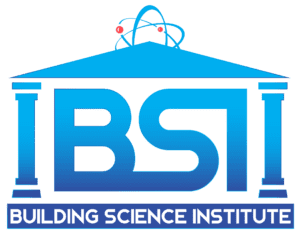ENERGY STAR® Software Analyst Level 2
ENERGY STAR Software Analysts credentialed by the Building Science Institute are qualified to perform software analysis for the ENERGY STAR New Homes Multi Family program; perform software analysis in conformance with ANSI/RESNET/ICC 301-2019, 380-2019, and ANSI/RESNET/ACCA 310-2020; and perform software analysis for the ICC Energy Code Prescriptive, UA, Cost Performance, and Energy Rating Index (ERI) compliance paths. They are NOT qualified to perform verifications, inspections, and testing and must work with a qualified Verifier/Field Verifier credentialed by the Building Science Institute. They are NOT qualified to perform software analysis for Indoor airPLUS or Zero Energy Ready Home program homes.
ENERGY STAR Software Analyst Level 2 Required Training
Prior to credentialing, candidates must successfully complete the following training programs:
- ENERGY STAR Software Analyst Level 1
- ENERGY STAR Multi Family training by Building Science Institute (4.8 hours)
ENERGY STAR Software Analyst Level 2 Required Assessments
- ENERGY STAR Multi Family exam proctored by Building Science Institute
- 10 energy models in HouseRater (plans & specs provided by Building Science Institute), evaluated by Quality Assessor or Quality Assessment Designee credentialed by the Building Science Institute
- 2 apartment units on 1st floor adjacent to stairwell/elevator
- 2 apartment units on 2nd floor adjacent to stairwell/elevator
- 2 corner apartment units on 1st floor
- 2 corner apartment units on 2nd floor
- 2 top floor apartment units, not adjacent to stairwell/elevator, not corner units
ENERGY STAR Software Analyst Level 2 Competencies
ENERGY STAR Software Analysts must demonstrate knowledge of:
- ICC International Energy Code, 2018
- ANSI/RESNET/ICC 301-2019
- ENERGY STAR Single Family program requirements
- ENERGY STAR Multi Family program requirements
- HouseRater
- residential construction systems
- operation of processes
- delivery of services
- failures in the operation of a process
- deficiencies in the delivery of services

